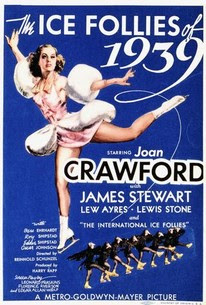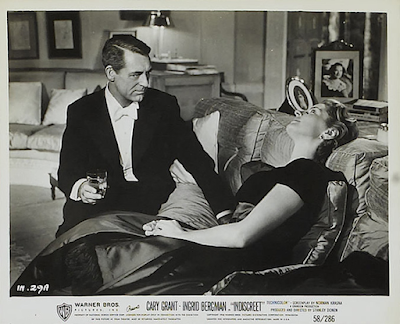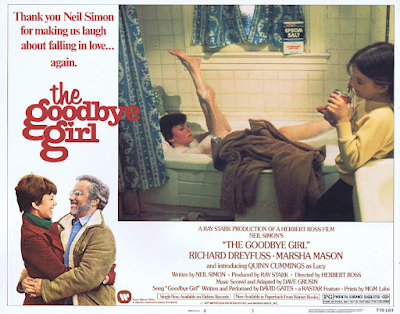Wonderland Burlesque's
Let's All Go To The Movies
Actresses In Love
And Cupid's arrow most certainly knows one target that will come up a winner every time - the heart of an actress.
Today's Let's All Go To The Movies edition is all bout actresses in love. And who better to tell the story than Hollywood?
Today's Let's All Go To The Movies edition is all bout actresses in love. And who better to tell the story than Hollywood?
Let's get right to it... since a couple of these films serve up some behind-the-scenes dish which is still hot!
An actress masquerading as a Swedish princess boards an ocean liner in Europe en route to an acting career in America, and finds herself inconveniently romantically attached to a bandleader returning home. To complicate matters, a blackmailer on board knows her secret - and he has his sights set on other passengers with secrets of their own. In the meantime an escaped killer has stowed away under someone else's identity, and is killing again to cover his tracks; five international police detectives on board are heading the investigation to find him. When evidence points to the princess and bandleader, the pair must find the killer themselves - before he finds them.
Based on the 1935 novel A Halálkabin by Louis Lucien Rogger, the pseudonym of Laszlo Aigner and Louis Acze, this comedy/mystery was directed by William K. Howard and stars Carole Lombard and Fred MacMurray, the second of the four times they were paired together.
Lombard, playing an actress from Brooklyn pretending to be a Swedish princess, does a spoof on MGM's Swedish star Greta Garbo. Variety called her Garbo impersonation a "swell characterization and makes a highly diverting contrast when the 'princess' lapses into her real self and unloads a line of Brooklynese." Lombard herself liked the film because it "allowed her to do what she had first practiced in childhood days back in Indiana – mimic a figure from the silver screen."
This film was initially intended to pair Lombard with George Raft for the third time, but Raft walked out when the studio assigned Ted Tetzlaff to photograph the film. Raft felt that Tetzlaff had made Lombard look better than himself in their earlier film, Rumba, and did not want it to happen again. It was one of many films Raft refused to do after becoming a star - including The Maltese Falcon, Double Indemnity, and High Sierra.
Filming was delayed due to the need for additional dialogue, which caused a change of directors from Harold Young to William K. Howard. Further conflict arose between Howard and the producer's assistant after filming had begun in February 1936. Howard, claiming interference on the set by producer Arthur Hornblow Jr.'s assistant, Dick Blumenthal, refused to continue shooting unless Blumenthal left the set, which he then did. Later, Howard refused to answer a summons by Hornblow, who reacted by giving official notice that production would cease until Howard reported to him. Later, executive producer William LeBaron rescinded Hornblow's order, and Howard resumed shooting.
The working title of film was Concertina. Fred MacMurray, an accomplished musician, actually plays his own concertina numbers in the film, and sings the song, My Concertina.
The distinctive veiled hat Carole Lombard wears in the opening scene aboard the ship is the same worn by Marlene Dietrich in 1936's Desire. It was created by costume designer Travis Banton.
William Frawley plays Fred MacMurray's sidekick in this film. Twenty-five years later, Frawley would be cast as MacMurray's father-in-law and essential co-parent on the television program My Three Sons.
On a transcontinental flight from New York City to Los Angeles, the flight hostess attracts the attention of a movie producer, who tries to persuade her to sign a movie contract. She declines, as she is in love with the pilot, who she wants to teach her how to fly. Due to unfavorable flying conditions, the plane is grounded in L.A, but a movie star on board insists the pilot start for New York, despite the weather. The airline's publicity director sees P.R. potential and orders Neil to take up the airplane. Later, the plane is reported lost and newspapers publish stories of the lost plane, the lost actress and the lost pilot. Eventually, they are found on a mountain, having been forced down by the storm. While there, the actress offers to make the pilot her new leading man in her next film and he, pushing aside his goal of flying solo around the world, accepts. Meanwhile, the flight hostess decides she will take flying lessons under the guidance of another pilot so she can accomplish what the love her life had intended to do: fly around the world!
This drama was directed by Conrad Nagel and stars Bruce Cabot, Beatrice Roberts, John Sheehan, Astrid Allwyn, Elliot Fisher and Wild Bill Elliott.
Beatrice Roberts was a former beauty queen who went to Hollywood in 1933 and, between then and 1946, appeared in nearly 60 films, including the 1937 drama Love Takes Flight. Many of her roles were small and uncredited. She is mostly remembered for playing Queen Azura in Flash Gordon's Trip to Mars, a 1938 serial. When her acting career failed to become the success she had dreamed of, she left Hollywood in 1949.
An ice skater jeopardizes her marriage when she becomes a movie star. The couple was originally a modestly successful skating team. However, shortly after their marriage, the wife gets signed by a movie studio contract, while the husband is left sitting at home. Out of work he decides to demonstrate that he can accomplish things on his own. He leaves Hollywood and convinces a former partner to put on an ice revue in Canada. The show is a huge success, but the distance puts a strain on their relationship.
This musical drama was directed by Reinhold Schünzel, and stars Joan Crawford, James Stewart, Lew Ayres and Lewis Stone.
While she did very little skating, Crawford did sing. In fact, the studio claimed Crawford's singing was so impressive that after performing her six songs in this film, she was considering making her debut at the Metropolitan Opera. When the film premiered, however, her songs had been reduced to two, both of which were dubbed by a professional singer. Crawford would later claim that her vocals had been cut under orders from Jeanette MacDonald, who was afraid of being supplanted as MGM's resident singing star.
This film went into production around the time Joan Crawford's name was included in a trade publication's list of actresses who were considered "box office poison". Marlene Dietrich, Mae West and Katharine Hepburn were also included on that list.
This film was reportedly Joan Crawford's least favorite film of her entire career. When it tanked at the box office, it prompted The New York Times to suggest "Miss Crawford should not make any more films like this." It was then that Crawford began to question the wisdom of the MGM executives who'd guided her career since 1925. Within a few years, and several more unpopular releases, she bought her way out of her Metro contract, going into semi-retirement until an appropriate comeback vehicle could be found. She would choose Warner Brothers' 1945 melodrama Mildred Pierce, and win an Academy Award as Best Actress for her performance.
In the opening sequence of 1981's Mommie Dearest, Crawford, as played by Faye Dunaway, is seen prepping for this movie.
An actress based in London has been unable to find love in her life. She returns home early from a vacation in Majorca when she discovers that a man she met there turned out to not be the man she thought he was. Upon her arrival home, she meets a suave financier who is a work acquaintance of her brother-in-law, who is a diploma. The financier initially tells her there is no wife in his life, but when the actress questions him later, he claims she misunderstood him. Despite this, the actress decides to ask him out to the ballet as she had originally intended. He accepts, letting her know that whatever happens between them, he will never be able to leave his wife. As time goes on, the two fall in love, but their happiness can only be sustained as long as the financier has his Paris-based contract with NATO. When he announces he is being transferred to New York for five months, the actress realizes that she truly cannot live without him and wants to marry him. Shortly thereafter, she learns something about the man's background that threatens their relationship, leading to a night neither will ever forget.
Based on the play Kind Sir by Norman Krasna, this romantic comedy was produced and directed by Stanley Donen and stars Cary Grant and Ingrid Bergman.
The original Broadway production of Kind Sir opened at the Alvin Theater on November 4, 1953, ran for 166 performances, and closed on March 27, 1954. The cast included Charles Boyer and Mary Martin, who was also one of the producers.
No film studio sought the rights to the play, so Krasna's co-producers - Joshua Logan, Mary Martin, and Charles Boyer - agreed to sell the rights to Krasna for $10,000. Krasna failed tell them he had lined up Cary Grant and Ingrid Bergman to star in a film version.
It was originally announced, via columnist Louella Parsons, that the film would be made with either Marilyn Monroe or Jayne Mansfield, and with Clark Gable as the male star.
Krasna asked Stanley Donen to direct while the latter was making Kiss Them for Me with Cary Grant. Donen agreed "but only with Cary". Grant agreed but only if his co-star was Ingrid Bergman. Bergman agreed, provided the film could be shot in England as she had a theatre commitment in Paris.
The casting of Cary Grant and Ingrid Bergman as slightly-older and wise, sophisticated lovers held significant relevance to 1958 audiences; Grant was on the third of his five marriages, while Bergman had ridden the waves of scandal following her adulterous relationship with Italian director Roberto Rossellini.
A divorced woman and her daughter come home to find that her boyfriend has left for an out of town job with no warning. This has happened before. The second surprise comes in the form of another actor who has sublet the apartment from her boyfriend who failed to mention that a the pair of females would also be living there. After some negotiation, the two decide to share the apartment - even though the woman has vowed that she is through with actors.
--- ---
The Princess Comes Across
(1936)
Lombard, playing an actress from Brooklyn pretending to be a Swedish princess, does a spoof on MGM's Swedish star Greta Garbo. Variety called her Garbo impersonation a "swell characterization and makes a highly diverting contrast when the 'princess' lapses into her real self and unloads a line of Brooklynese." Lombard herself liked the film because it "allowed her to do what she had first practiced in childhood days back in Indiana – mimic a figure from the silver screen."
--- ---
Love Takes Flight
(1937)
She was briefly married to Robert Ripley, creator of Ripley's Believe It Or Not.
--- ---
The Ice Follies Of 1939
(1939)
An ice skater jeopardizes her marriage when she becomes a movie star. The couple was originally a modestly successful skating team. However, shortly after their marriage, the wife gets signed by a movie studio contract, while the husband is left sitting at home. Out of work he decides to demonstrate that he can accomplish things on his own. He leaves Hollywood and convinces a former partner to put on an ice revue in Canada. The show is a huge success, but the distance puts a strain on their relationship.
James Stewart, Joan Crawford and Lew Ayres
--- ---
Indiscreet
(1958)
Based on the play Kind Sir by Norman Krasna, this romantic comedy was produced and directed by Stanley Donen and stars Cary Grant and Ingrid Bergman.
No film studio sought the rights to the play, so Krasna's co-producers - Joshua Logan, Mary Martin, and Charles Boyer - agreed to sell the rights to Krasna for $10,000. Krasna failed tell them he had lined up Cary Grant and Ingrid Bergman to star in a film version.
It was originally announced, via columnist Louella Parsons, that the film would be made with either Marilyn Monroe or Jayne Mansfield, and with Clark Gable as the male star.
The Goodbye Girl
(1977)
This romantic comedy/drama was directed by Herbert Ross, written by Neil Simon and stars Richard Dreyfuss, Marsha Mason, Quinn Cummings and Paul Benedict.
Originally titled Bogart Slept Here, the story was supposedly based on Dustin Hoffman's life as a struggling actor. Hoffman wanted the lead role in the film but was turned down. Robert De Niro was signed with Mike Nichols directing. After several table readings, artistic differences forced De Niro and Nichols to part ways two weeks into production. De Niro was then fired. "I couldn't believe it!" Dreyfuss said. "Nobody fires De Niro!" To this day, De Niro refuses to talk about the experience in interviews.
Other actors were considered, including Jack Nicholson, James Caan and Tony Lo Bianco. Dreyfuss, in the midst of a winning streak, was brought in to test opposite Marsha Mason. At the end of the read-through, writer Neil Simon ruled, "It doesn't work, but they do." The two leads for the picture were then finalized, but filming was suspended as Simon reworked the script. After an extensive rewrite by Simon, Herbert Ross was signed to direct.
After the disastrous early shoot under the working title Bogart Slept Here, Warner Bros. was hesitant to greenlight the picture, despite Simon's rewritten script. They finally agreed to go forward after making a deal with Metro-Goldwyn-Mayer to split the costs - a novel arrangement at the time, which has since become an industry standard.
Marsha Mason, who was in a relationship with Simon at the time, initially had difficulty relating to Dreyfus's energy level and way of working, but soon fell under his spell. One the other hand, she adored working with Quinn Cummings from moment one.
During the film, Mason's character says to Dreyfuss, "If you're ever up for an Academy Award..." Both actors ended up being nominated for Best Actress and Best Actor respectively, with Dreyfuss taking home gold. At the time, Dreyfuss, who was 30, was the youngest actor to ever win the Oscar for Best Actor in a Leading Role. Adrien Brody would change that in 2003, winning at the age of 29.
Quinn Cummings was nominated for Best Supporting Actress.
This was one of two films directed by Herbert Ross in 1977 to be nominated for Best Picture of the year. The other was The Turning Point, featuring nominees Anne Bancroft and Shirley MacLaine.
The film's theme song, Goodbye Girl, sung and written by David Gates, went to No. #15 on the Billboard Hot 100 Chart in 1977.
Simon wrote a sequel to this movie, titled Mr. Famous, in which the lead characters were reunited in California. There were several readings of the script, with Simon, Dreyfuss, Mason, director Herbert Ross, and producer Ray Stark, but the movie was never produced. In a 1991 interview, Dreyfuss explained that the movie was never made because it dealt with his character's problems after he became famous, and "no one gives a damn about the problems of a movie star." Quinn Cummings revealed that there were only 20 copies of the script for Mr. Famous in existence - and she still has hers.
--- ---
And that's all for now.
Tune in next time...
Same place, same channel.
The Goodbye Girl - David Gates











































































































1 comment:
If there's one thing I could never imagine, it would be Crawford singing anything. LOL.
Post a Comment